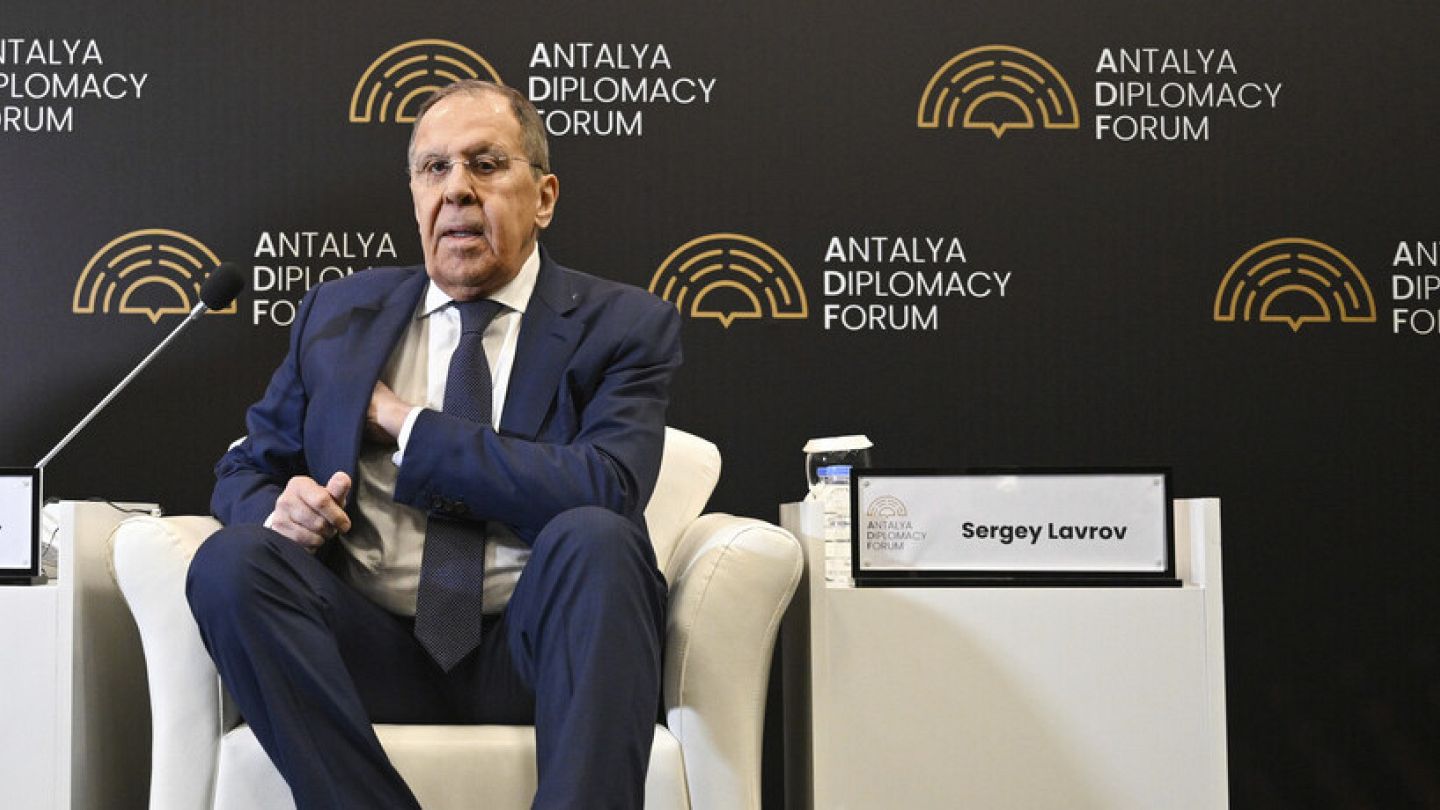Discussion on energy infrastructure at the Antalya Diplomacy Forum: Russia and Ukraine blamed each other.
Russian Foreign Minister Lavrov and his Ukrainian counterpart Sybiha, speaking at separate panels at the Antalya Diplomacy Forum, accused each other's countries of targeting energy infrastructure despite a limited ceasefire brokered by the U.S.
Russia and Ukraine accused each other of violating the ceasefire with mutual attacks on energy infrastructure. In their speeches at different panels of the 4th Antalya Diplomacy Forum, Russian Foreign Minister Sergey Lavrov and Ukrainian counterpart Andrii Sybiha accused each other of attacking energy facilities. Lavrov stated that since March 18, when Russian President Vladimir Putin agreed to halt attacks for 30 days during a phone call with U.S. President Donald Trump, Russia has not attacked any Ukrainian energy facilities. Accusing Ukraine of violating the terms of the agreement reached with U.S. mediation, Lavrov said he provided a list of energy facilities targeted by Ukraine to various parties involved in diplomatic efforts. "We keep our promise. The Ukrainians, from the very beginning, have been attacking us every day, perhaps with two or three exceptions," Lavrov continued, "I gave the list of Ukraine's attacks on Russian energy infrastructure in the last three weeks to our colleagues from Turkey, to (Foreign) Minister (Hakan) Fidan, to the Americans, to the UN, and to the OSCE." Sybiha, countering Lavrov's claims, accused Russia of not being serious about peace and alleged that the Kremlin had launched thousands of missiles at Ukraine in recent weeks. "Russia escalated terrorism and war; the statistics are available. It launched almost 70 missiles, over 2,000 Shahed drones, and more than 6,000 guided bombs at Ukraine, most of which were aimed at civilians. This clearly shows the world who wants peace and who wants war," he said. Lavrov also warned that a potential Black Sea agreement could only be implemented after issues related to insurance, trade, and access of Russian entities to ports are resolved. The details of the possible agreement were not disclosed, but it seems to be another attempt to ensure the safety of maritime transport in the Black Sea following an agreement signed under the mediation of the UN and Turkey in 2022, which Russia suspended the following year. Lavrov stated, "This time, when President Trump proposed a new Black Sea agreement, Putin said, 'Yes, we are ready, but we need to learn from the past.' Let’s resolve issues such as trade, insurance, and port access. The Americans took this and are evaluating it. They have not come back to us since then." A statement from the White House in March indicated that the U.S. would "help ensure that Russia's access to global markets for agricultural products and fertilizers is restored, reduce marine insurance costs, and improve access to ports and payment systems for such transactions." U.S. Secretary of State Marco Rubio noted that they would "evaluate Russia's conditions" and mentioned that some of them "also included sanctions belonging to the European Union, aside from U.S. sanctions."


